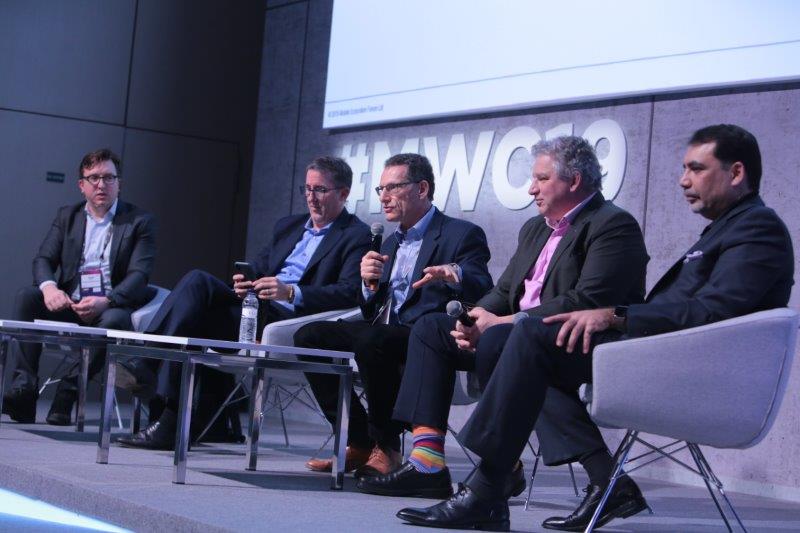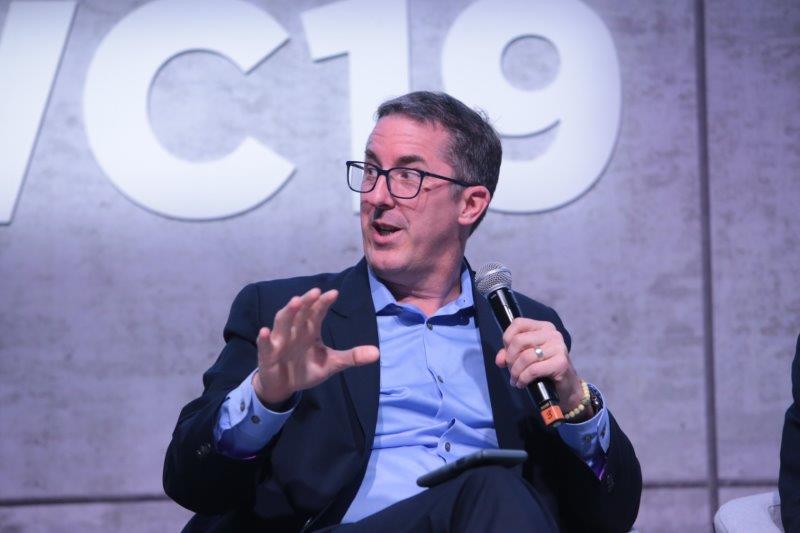When we share data, we get efficient services and personalised products. We also get identity theft and creepy advertising. So how can we tackle this paradox? At MWC19, MEF invited four experts to discuss…
Is society finally waking up to the notion of digital privacy?
Without doubt, the conversation is taking shape. People are now engaging with issues such as trust, compliance, harm mitigation and the sovereignty of the individual.
MEF’s own research confirms it. Just weeks ago, MEF’s 5th annual Global Consumer Trust Study revealed that three in four people have taken some action to protect themselves.
Watch the Future of Privacy panel from MWC 2019 in full
Privacy and trust are at the top of the industry agenda, and MEF is leading the conversation.
This was certainly true at MWC19, at which MEF convened a Future of Privacy panel session to dive into the major issues.
Dario Betti, CEO of MEF, led a conversation on stage with four senior industry thinkers.
- Michael Becker, Strategic Advisor, Assurant
- Julian Ranger, Chairman, Digi.me
- Anurag Lal, President & CEO, Infinite Convergence
- Andrew Bud, Founder & CEO, iProov
Here are the highlights of a lively discussion.
Is the era of carefree data sharing coming to an end?
In a word, yes. The many cases of data theft, the Facebook scandals and the emergence of GDPR have combined to change the public’s perception of privacy.
In fact, Michael Becker termed this a ‘grand awakening.’
He referred to the findings of MEF’s own Global Consumer Trust Study to illustrate the point.
“75 percent of people took their first action to defend themselves in the last two years,” he said. “However, these actions have been naive and quixotic. They feel what they’re doing is right, but it’s not truly protecting them.”
Anurag Lal agreed, and pointed the finger at the enterprises gathering data from individuals. “This situation has crept up on us. We have lacked awareness of the power in the hands of some of these companies. Now we’re discovering it because of the breaches we are seeing.”
Is the answer to share less?
Julian Ranger was keen to reject the notion that people should protect their privacy by hoarding their data. Rather, he argued for more sharing – but sharing done under the individual’s control.
He said: “There’s this idea that privacy is broken, with the implication that people should take control and allow less to happen. But we need to share more if we want to take advantage of the future.
“Take healthcare. I will need to share all health data to take full advantage of future medical solutions – my genomics, food intake, data from my wearables, maybe even my social data. With the current architecture I can’t. We think these corporations are omnipotent. They’re not. It’s only Individuals that can access all relevant data. They just need the tools to do it. And when they can, organisations won’t need to track me.”
A new era of safe data sharing needs a new digital identity architecture
How can we trust the people we share data with without knowing everything about them? This is a fundamental question. Solve it and we can benefit from rich exchanges of value without exposing everything about ourselves.
Andrew Bud articulated this issue, and argued for new thinking about digital identity.
“The ability to do things in the online world comes when recipients can know things about us,” he said. “Our identity is a collection of attributes, and our ability to assert these private attributes becomes an enormous element of empowerment. But that ability must be safeguarded and secured, to protect our identity from theft. And that protection must be based on ‘who you are’, not what you know or what you own.”
Can we truly have informed consent?
A tricky question, as Michael Becker explained. His argument was centred on algorithms. In short: how can consumers give consent when they don’t know how the algorithms will interpret and act on their data?
“This is where informed consent falls down,” he said. “We can’t understand what the algorithms will split out. Neither can the companies in fact. There will be a lot of legal issues with this. It will be interesting.”
Huge privacy lawsuits might change everything
A little-discussed aspect of GDPR could have huge implications, argued Andrew Bud. He cited Article 82, which gives consumers the right to sue for non-monetary damages resulting from privacy breaches.
“This could be single most powerful weapon the Europoean demos has,” he said. “Iforganisaitonss are systematically abusing people’s data for the purposes not intended, we could see gigantic lawsuits that could put them out of business.”
Should people be rewarded for sharing data?
It depends on what you mean by reward. Julian Ranger argued that it’s wrong to fixate on financial rewards. “Companies concentrating on monetary rewards are having a hard time of it,” he said. “Value exchange is more important. For instance, the value of sharing data to get a loan when you previously had a thin credit file.”
Privacy at work is a rising concern
Most of the debate around data privacy is centred on consumers. It won’t be long before the conversation extends to the workplace, said Anurag Lal.
“The enterprise is no different. The habits we practice in our consumer lives will creep into our enterprise lives. And in the enterprise, information can be compromised at a much higher cost.”









One Comment